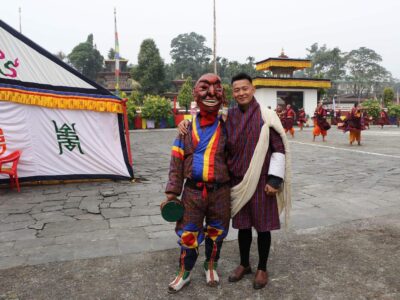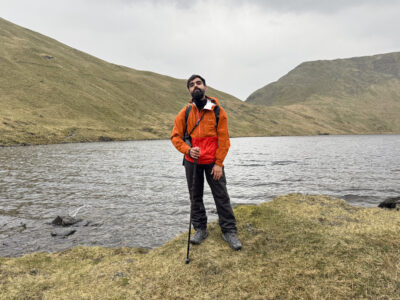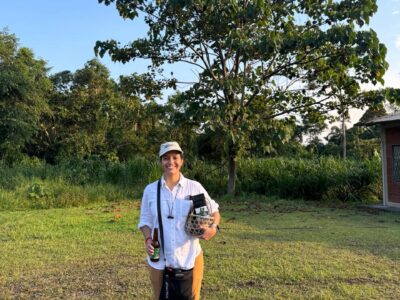When Marta Vicarelli first heard the term “sustainable development,” she was in high school. “At that time, environmental concerns were not a priority in the international agenda,” explains Marta, a fourth year Ph.D. candidate in Columbia University’s School of International and Public Affairs (SIPA) program in sustainable development.
The Ph.D. program, which started five years ago, currently has 23 candidates, has had one graduate, and is already the most sought after advanced degree of its kind. “I have always been interested in environmental economics and policy,” says Marta, who received her second master’s degree just before Columbia launched its new Ph.D. program in sustainable development. She previously worked as a research fellow at the National Aeronautic and Space Administration (NASA) Goddard Institute for Space Studies; she was also a contributing author to the Intergovernmental Panel for Climate Change (IPCC) Fourth Assessment Report, Working Group II Fourth Inquiry, which was part of the IPCC project that earned the Nobel Peace Prize in 2007.
Taking an interdisciplinary approach to sustainable development, SIPA’s Ph.D. program merges the offerings of a standard doctoral program in the social sciences with intensive studies in the natural sciences. “It responded exactly to my needs,” explained Marta. The core curriculum provides students with the knowledge necessary to effect positive change worldwide. With students like Marta, the program is clearly on the right track.
Before attending Columbia, Marta spent three years in Paris on a fellowship granted by the French Ministry of Education, earning first a B.S. in earth and atmospheric sciences from the Ecole Normale Superieure, and then an M.A. in environmental economics from the Ecole Polytechnique. After her time in France, she moved to New York City, where she studied at Columbia University’s School of International and Public Affairs, earning herself yet another degree, a Master of International Affairs (M.I.A.).
A rigorous program, the Master of International Affairs offered Marta further academic knowledge in subjects such as economics and international policy analysis, while providing the managerial skills and experience necessary to work in important, real-world situations. Upon graduating from this program, Marta decided to apply to Columbia’s Ph.D. program in sustainable development, which she views as “a unique academic platform that allows me to interact with researchers from different disciplines as well as with the policy and management communities.” Marta explains, “In this program I am learning to link knowledge with action to promote sustainability.”
Marta and her fellow Ph.D. candidates come from a wide variety of backgrounds, which allows them to each take a different approach to the core issues. Ph.D. candidates study economics and econometrics, and they focus on development from both the political angle and the environmental and ecological angles. Students work with Columbia University experts associated with the Earth Institute in areas such as Ecology, Evolution and Environmental Biology, Environmental Health Sciences, and Earth and Environmental Engineering. Graduates from the program, as both economic and environmental specialists, are uniquely positioned to offer expertise and perform research in a wide array of subjects, ranging from extreme poverty to climate change.
Because a sustainable planet is a prerequisite for continued human life, an atmosphere of collaboration, and not competition, permeates the Ph.D. program. “We are proud of each other’s achievements,” Marta relates. “My fellow students are not just incredibly smart and intellectually stimulating multilingual Indiana-Jones-like creatures, ready to pack to do field research in Timbuktu or Bhutan with a two-day notice, they are also great friends.”
Currently, she is collaborating with researchers at the Earth Institute’s International Research Institute for Climate and Society (IRI), an organization dedicated to performing scientific research to help countries in the developing world meet their needs. Marta’s project focuses on designing weather-indexed insurance contracts, a new tool of micro-finance that allows poor rural households in developing countries to reduce their vulnerability to climate variability. “Working on this project is very interesting: first, because the research team is multidisciplinary; it includes climatologists and economists,” Marta explains, “and second, because the implementation of the project allows close interactions with rural farmers and local institutions.”
Marta is committed to working towards sustainable development through research, collaboration, and education. She acts as a teaching assistant for Microeconomics and Policy Analysis for the M.P.A. in Environmental Science and Policy at SIPA, and enjoys dedicating herself to her research. “I love to do research and disentangle complex problems,” says Marta, “and I absolutely love teaching and sharing my knowledge.” Taking advantage of her close relationship with the university, Marta also acts as a research assistant at the Center for Climate Systems Research at Columbia.
In the future, she hopes to continue finding useful applications for her research and educating others about the implications of her findings. Ultimately, she would like to work at a university and bridge the gap between academic specialists and policy creators. Her goal is to develop joint projects between the policy community and academia, while teaching to stay in touch with and educate rising generations of environmentalists. “I love when academia and practitioners meet to create innovative solutions. This is the thing that I love the most about my work.”



